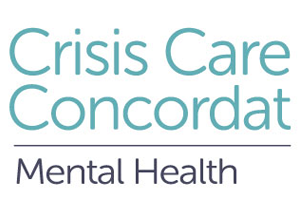When health and care conversations turn to ‘the NHS and winter pressures’, the tendency is to focus on familiar issues: A&E capacity, flu vaccine provision, ambulance response times etc. This year, we want to give equal emphasis to the provision being made for those experiencing mental health crises this winter – and beyond.
 The Mental Health Crisis Care Concordat, launched earlier this year, exists in part to encourage local health and care services (police authorities, hospitals, GPs, mental health professionals, social services etc) to be ready for spikes in demand – and to maintain continuity of care when resources are being stretched more than usual.
The Mental Health Crisis Care Concordat, launched earlier this year, exists in part to encourage local health and care services (police authorities, hospitals, GPs, mental health professionals, social services etc) to be ready for spikes in demand – and to maintain continuity of care when resources are being stretched more than usual.
It’s good to see therefore that NHS England has made it a requirement for all Clinical Commissioning Groups (CCGs) to make local crisis declarations part of their resilience planning. You can see who’s already declared and delivered their action plans here. If you’re involved in their preparation you should already be aware that 15 December is the final deadline for submissions.
These declarations, to be jointly made by health, policing and local authority colleagues, are statements of intent – a set of commitments to deliver joined up, effective care when and where it’s needed. It’s reassuring therefore to see many of the declarations so far received including bids for street triage services – perhaps one of the most effective demonstrations of local police working with mental health professionals in real time.
Let’s remind ourselves of where the concordat is focusing its attention:
- Access to support before crisis point
- Urgent and emergency access to crisis care
- Quality of treatment and care when in crisis
- Recovery and staying well

20 organisations signed up to the concordat’s tenets earlier this year. Since then, the Department of Health, in close partnership with Mind, has acted as steward of this complex alliance.
It’s an alliance which has broadened through our work with the Home Office, who have helped us build effective partnerships with national police leads. The police are an audience critical to the concordat’s success, as they are often first on the scene to encounter people in crisis situations.
How effective these arrangements have been and where next for the concordat – December 15 deadlines for local declarations notwithstanding – will doubtless be discussed at the first Crisis Care Concordat Summit, taking place in London this week.
Regardless of what’s being discussed, there is much being done to encourage and focus the provision of crisis care services. NHS England is planning a £30 million targeted investment to help people in crisis access effective support in accident and emergency settings. It is also quality assuring local resilience plans, which include proposals for new street triage schemes, and expanded crisis and home treatment services.
Safeguarding and the quality of care remain priorities. To this end, the Care Quality Commission (CQC) has begun a themed programme on mental health crisis care. This programme includes a survey of health-based places of safety, with a focus on coverage, capacity, inclusion and exclusion criteria, staffing, arrangements for governance and multi-agency working, including police support. The Commission is also carrying out a wider mental health crisis review, inspecting services against the standards set out in the Concordat.
Meanwhile, crisis care declarations have already been made by Cheshire and Wirral, Oxfordshire, Gloucestershire, Norfolk, Suffolk, Portsmouth, Wiltshire, Leicester, Leicestershire & Rutland, Cambridgeshire & Peterborough, North Yorkshire & York, and London. Others will follow soon. What’s important is our collective intent to deliver effective mental health crisis care throughout England. Never mind winter pressures, mental disorders can strike any time, and we need to be ready wherever and whenever they do.
